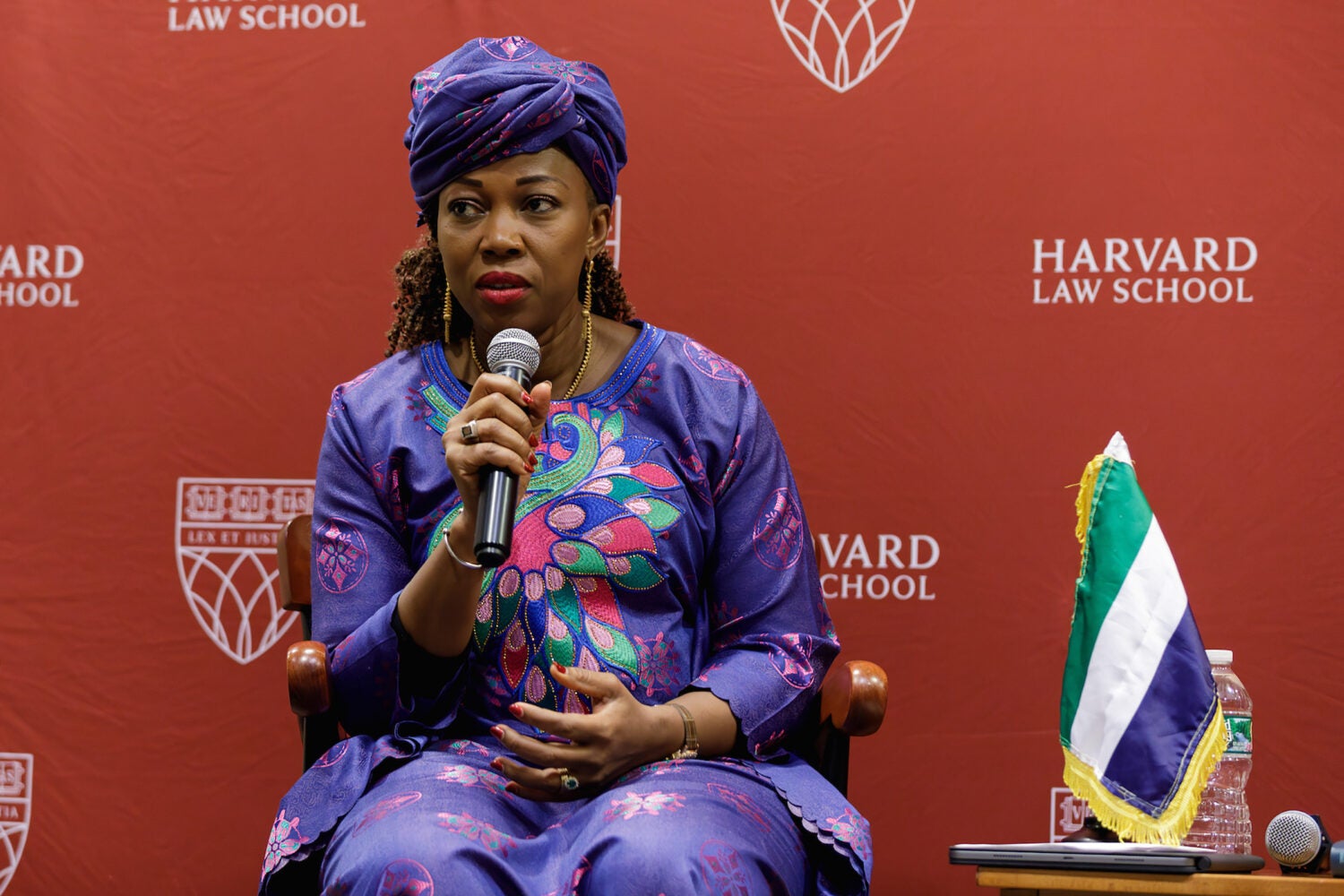First Lady of Sierra Leone Fatima Maada Bio described herself as a 11-year-old “brimming with life and ambition” during a recent Harvard Law School talk. She loved school, she told her listeners, and dreamed of becoming a famous actor. Then, her family informed her they had married her off to a man her father’s age, and her world shattered.
“If I had stayed in the house of that old man, I would [have been] his property,” said Bio who fled the country to escape her fate, eventually earning degrees in performing arts and journalism and becoming a successful actor in London. But as time passed, her “deep desire to create positive change” inspired her to devote more and more of her life to activism, promoting girls’ and women’s rights and empowerment, public health, and social development across Africa.
In 2013, she married Julius Maada Bio, current president of Sierra Leone, and for years, Bio has been back in her country using her voice and her influence to end gender-based violence and practices such as child marriage and bride wealth payments that “normalize and enable violence against women,” not only in Sierra Leone but throughout much of the continent. With her remarks, Bio outlined the harsh realities facing many women in her homeland and beyond, and her efforts at reform.
“I have always believed that life for women and girls will not improve by chance,” said Bio. “It will get better by intentional change, and there is a lot to change especially when it comes to gender-based violence.”
Harvard Law Professor Ruth Okediji LL.M. ’91, S.J.D. ’96 introduced the First Lady at the afternoon event hosted by the Center for the Study of African Societies and Economies (CSASE), which operates under the auspices of the Berkman Klein Center’s Global Access in Action (GAiA) initiative. Okediji called the First Lady a role model, teacher, activist, “and a person whose very life exemplifies … what it looks like to be set free, delivered, to be in a position where you can speak to the bondage and to the pain that others suffer and to give voice to it as a leader.”
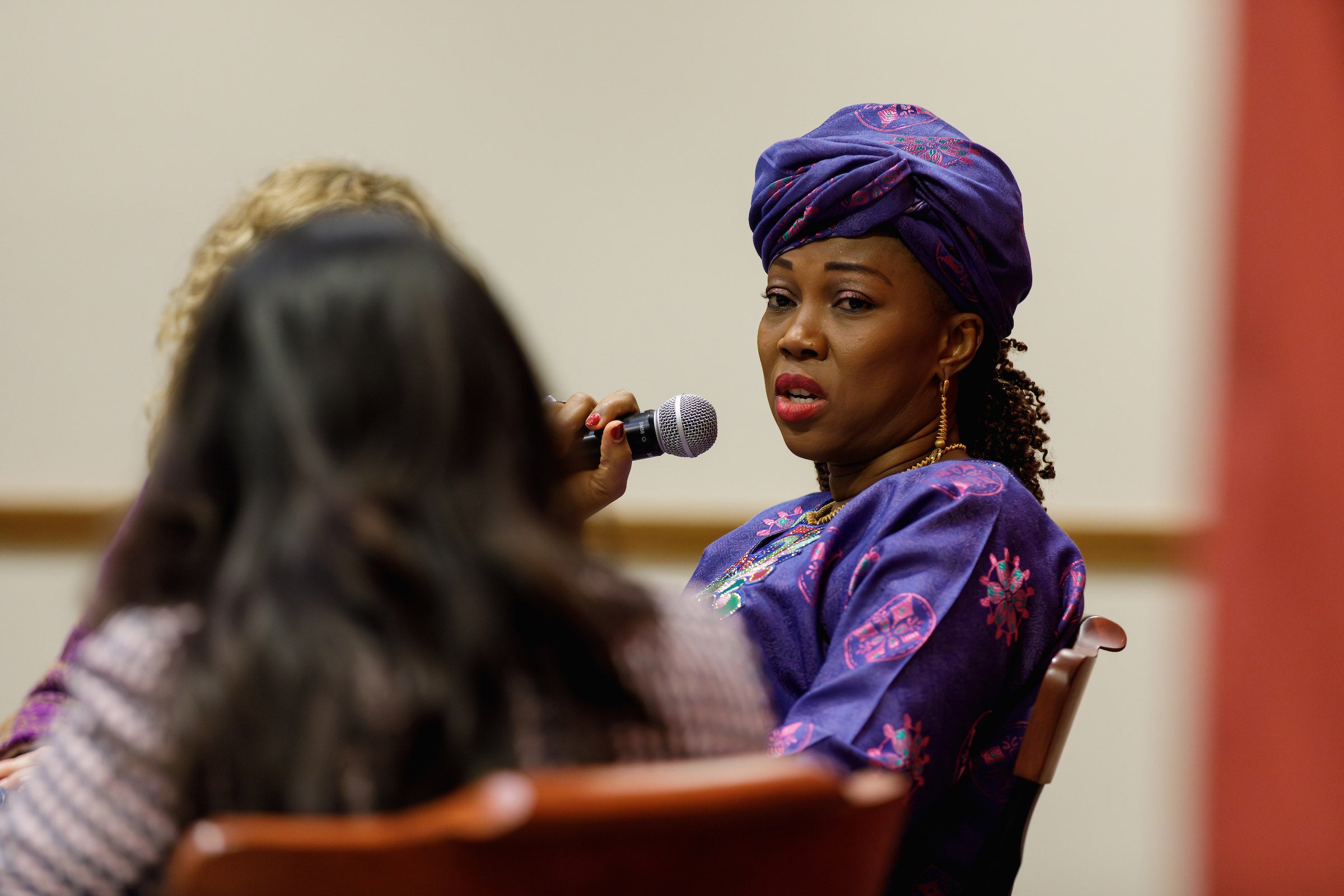
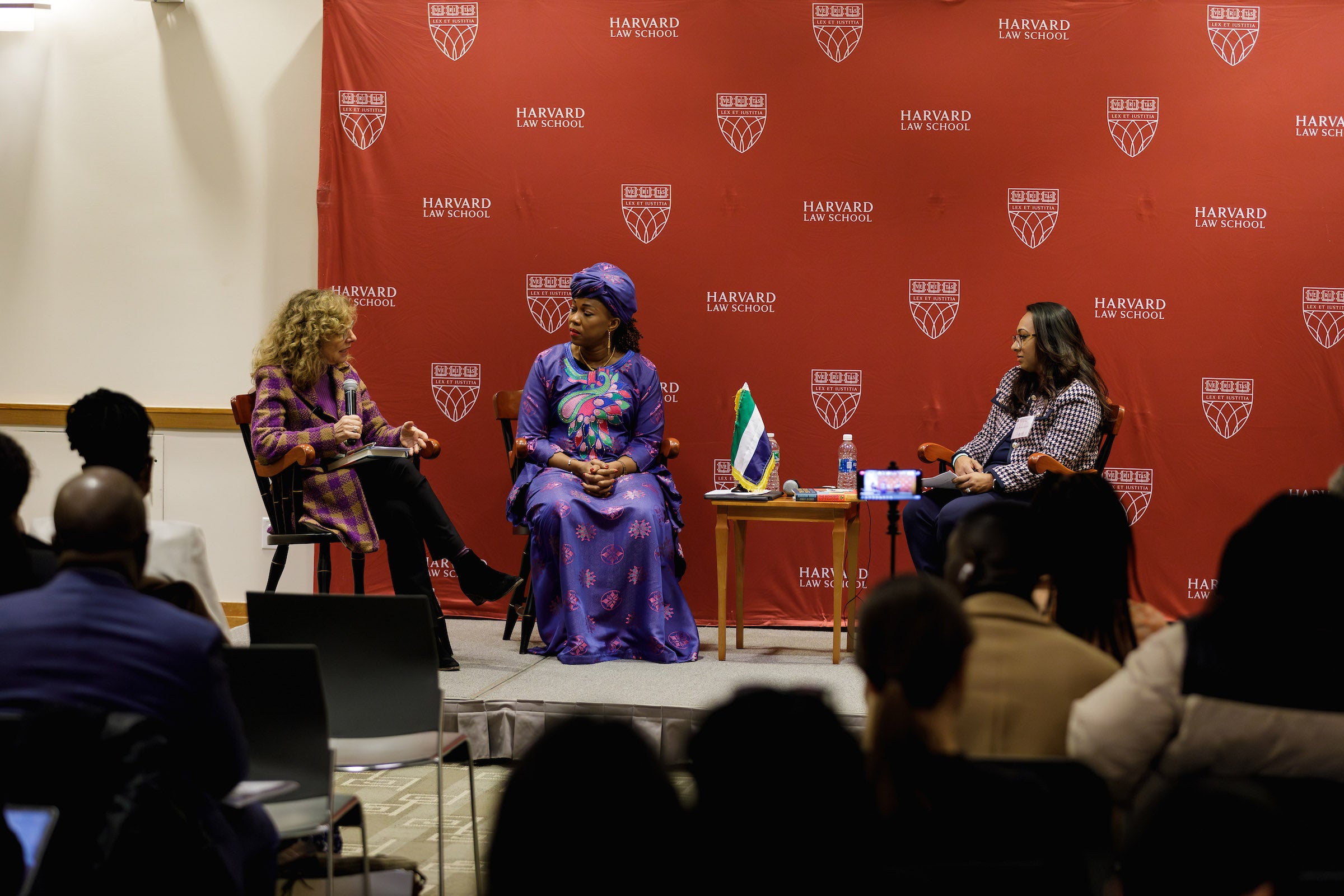
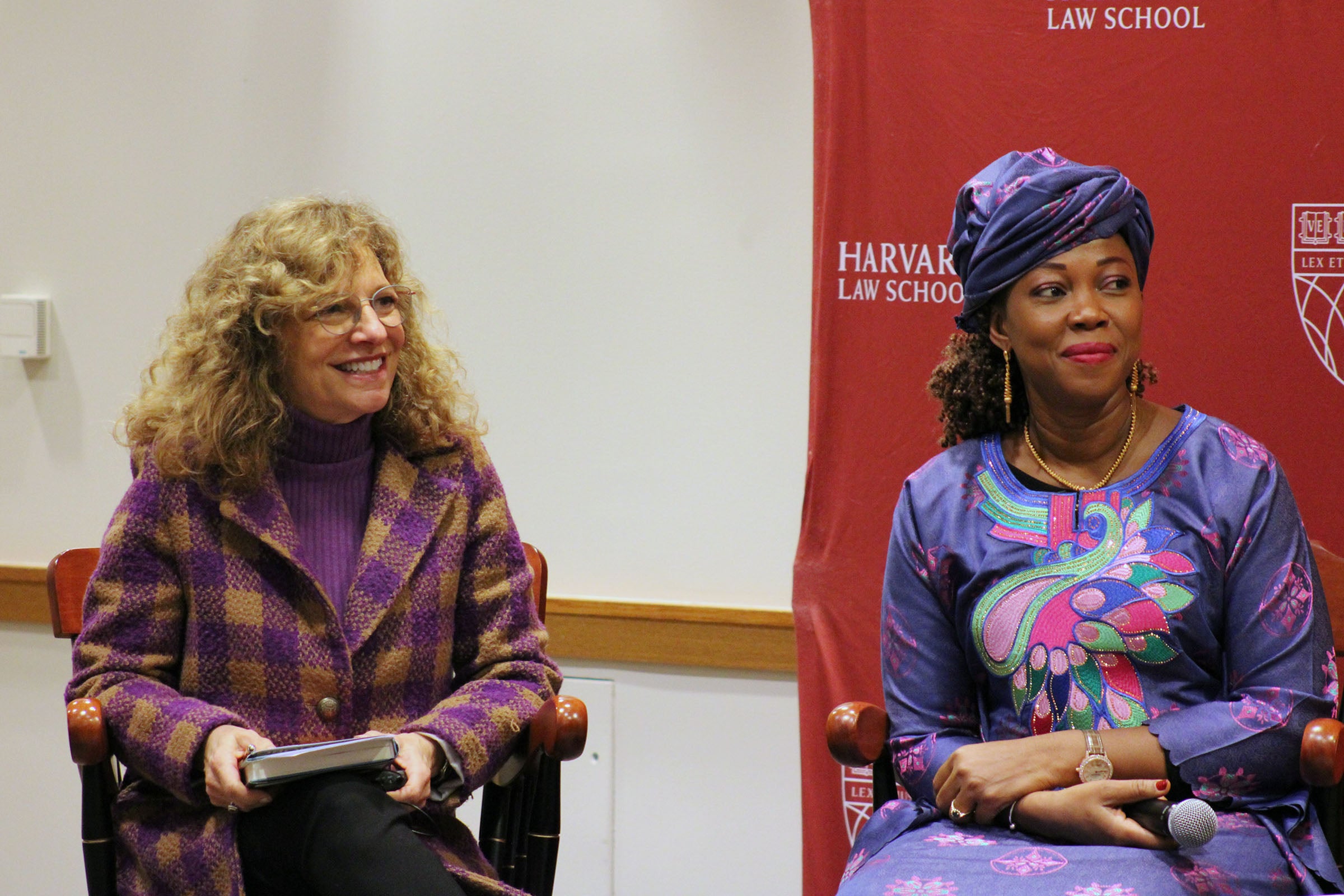
According to the 2019 Sierra Leone Demographic and Health Survey, 61 percent of women and girls between the ages of 15-49 have experienced physical violence since the age 15, and seven percent have experienced sexual violence. The non-governmental organization Human Rights Watch has said sexual violence during the nation’s civil war from 1991 to 2002, “affected thousands of girls and women of all ages,” and was rooted in “the persistent human rights violations that push women into a lower status with limited rights in all spheres of their lives.”
Central to Bio’s efforts is her “Hands Off Our Girls” flagship program begun in 2018 to end gender-based violence against girls and women, early marriage, teenage pregnancy and child trafficking and other abuses. In recent years, Bio has also organized the distribution of sanitary hygiene products to girls across the nation. That work has helped dispel the taboo around menstrual health, she said, and keep girls in school. “I take [these products] to the last village in the country,” she said, “and make sure I give to my girls.”
“I have always believed that life for women and girls will not improve by chance. It will get better by intentional change”
Developing economic policies that help lift women up, offering free access to education, improving healthcare, battling HIV, ending high infant and maternal mortality rates, dismantling harmful cultural practices rooted in patriarchal norms and making key amendments to the country’s justice system are keys to meaningful change and they are all part of Bio’s ongoing efforts. But long-lasting, structural change will require support from a range of stakeholders she said — from top politicians and grassroots activists to religious and local leaders — with women and men all engaged in the fight. “It goes beyond individual expressions of outrage,” said Bio. “It requires establishing a shared purpose, building strong relationships, and uniting people across a shared vision.”
She credits her husband with being a staunch ally and advocate for women’s rights from the very beginning. As president, he backed his wife’s 2018 “Hands Off Our Girls” campaign and in 2019 declared rape and sexual violence a national emergency. She called her husband a “strong supporter of women’s empowerment” with a range of key allies who share her vision for dismantling “systemic injustice for a better present and future for all women and girls. My husband has provided the space and support for me to complement the effort of the government in national development.”
As part of their work Bio and her husband also introduced changes to the nation’s sexual offenses act in 2019. Updated laws now include a 15-year minimum imprisonment for a rape conviction instead of two years. Those convicted of child rape are imprisoned for life. Other efforts include a new special court for rape cases; a reversal of the ban on pregnant girls and parent learners in school; free education for students in government-assisted schools; warm meals for impoverished students; and an initiative to introduce HPV vaccines for girls, among many others.
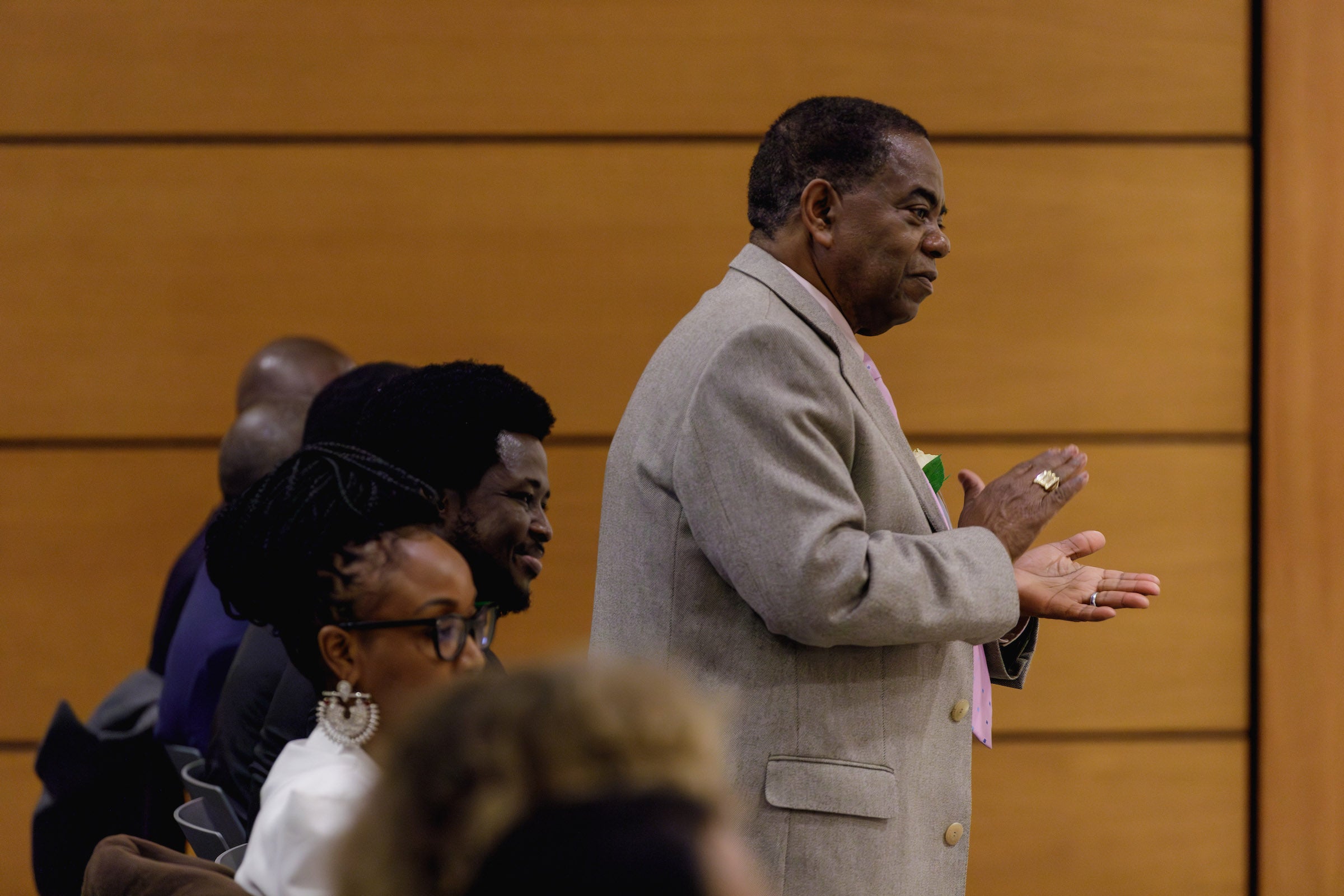
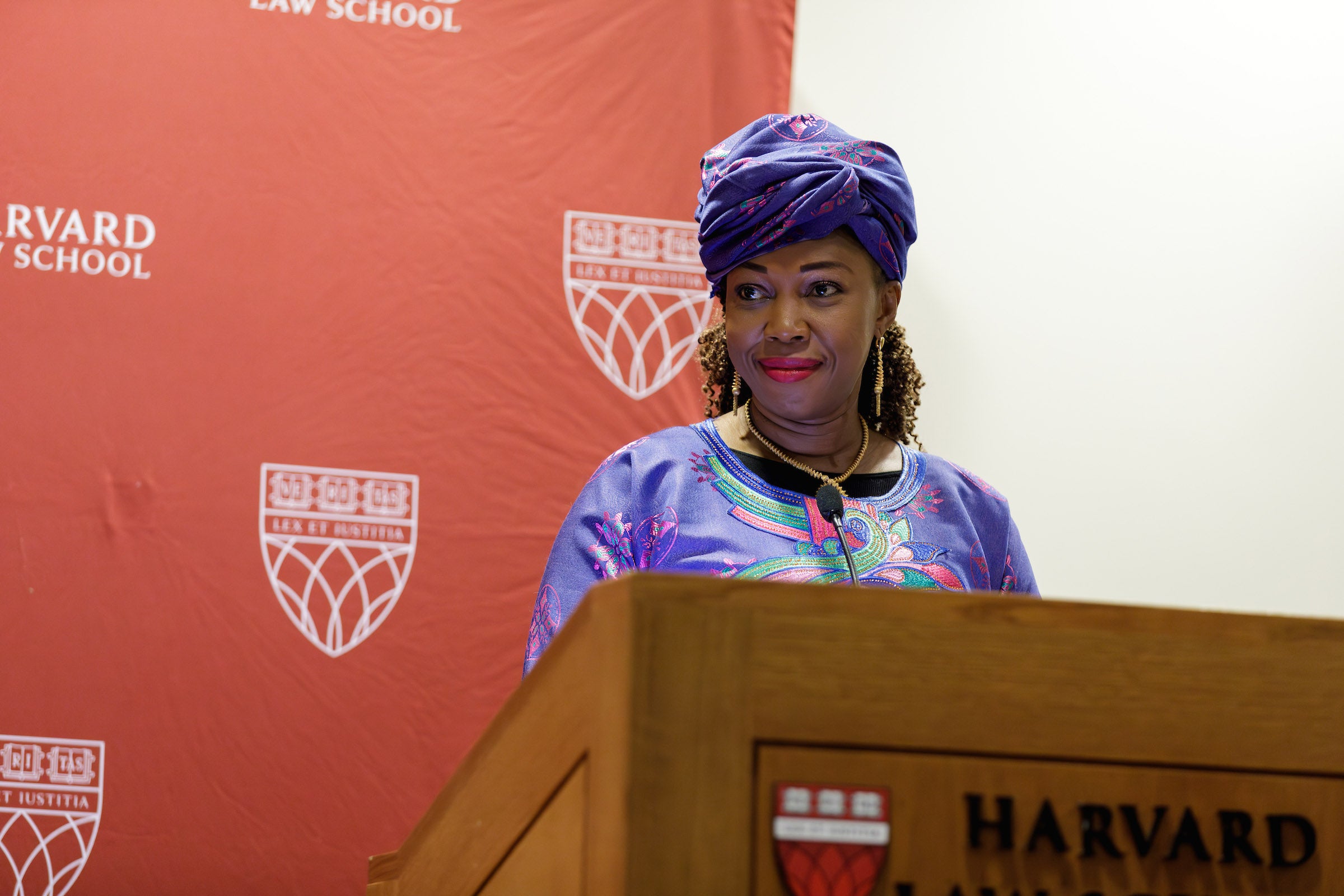
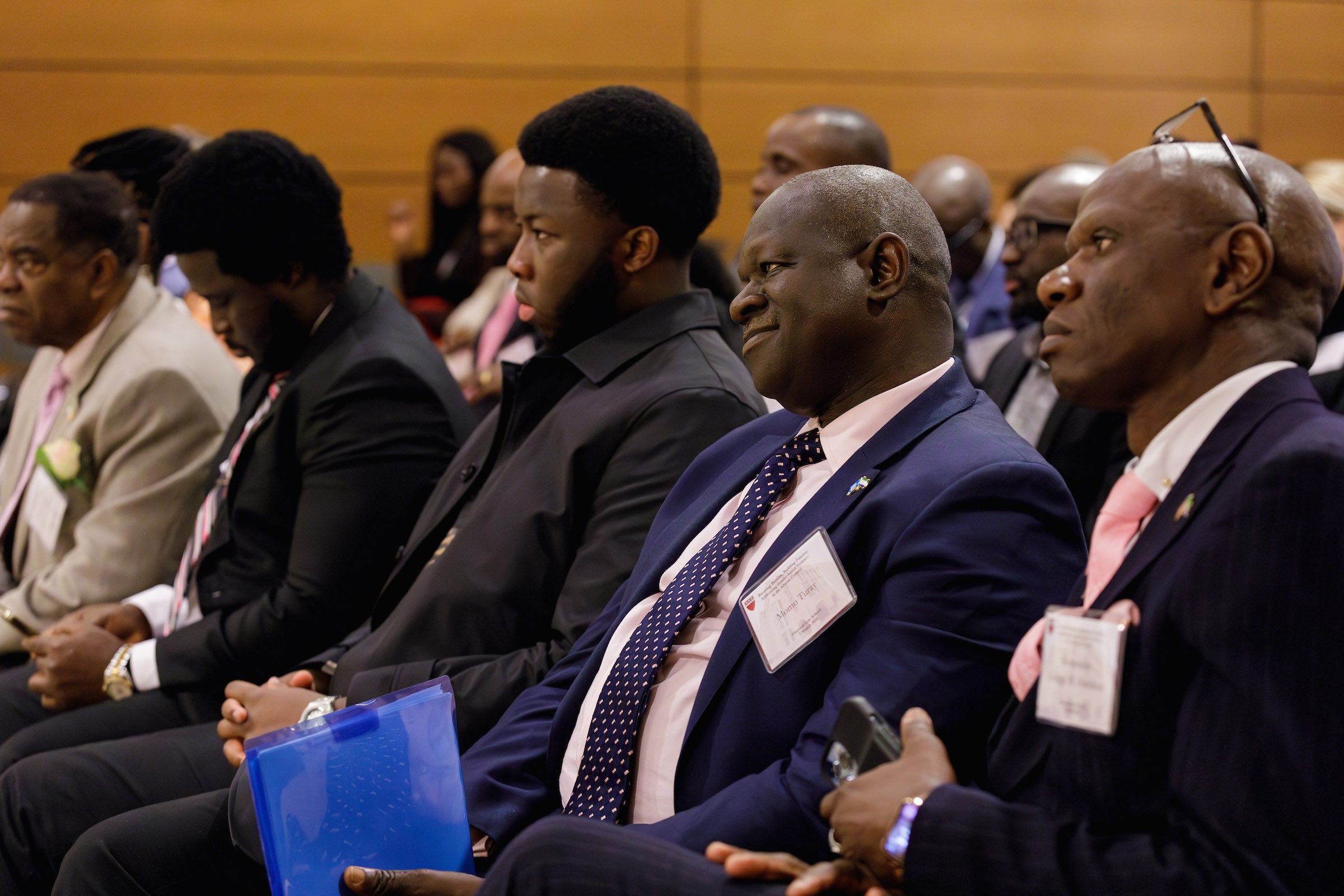
The afternoon event included a fireside chat with Bio and Diane Rosenfeld LL.M. ’96, founding director of the Gender Violence Program and lecturer on law at Harvard Law School. Rosenfeld referenced her book “The Bonobo Sisterhood: Revolution Through Female Alliance,” noting it frames the violence women face as “the product of patriarchal agreements between men, which are reflected in all governments constitutions, especially, and very visibly the United States’,” adding that women “can’t rely on the law to protect them from male violence because law is patriarchal.” To counter that narrative Rosenfeld looks to bonobos, who have “eliminated male sexual coercion,” she said, by having all females within earshot of another female being aggressed upon by a male rally to her side.
“[They] come immediately to her aid, they form an instantaneous coalition, and they fend off the male and send them into isolation … so, I’m saying, let’s look at how women can overcome patriarchal divisions and how we can hear one another’s call,” said Rosenfeld, calling Bio “a shining example of this.”
Want to stay up to date with Harvard Law Today? Sign up for our weekly newsletter.
